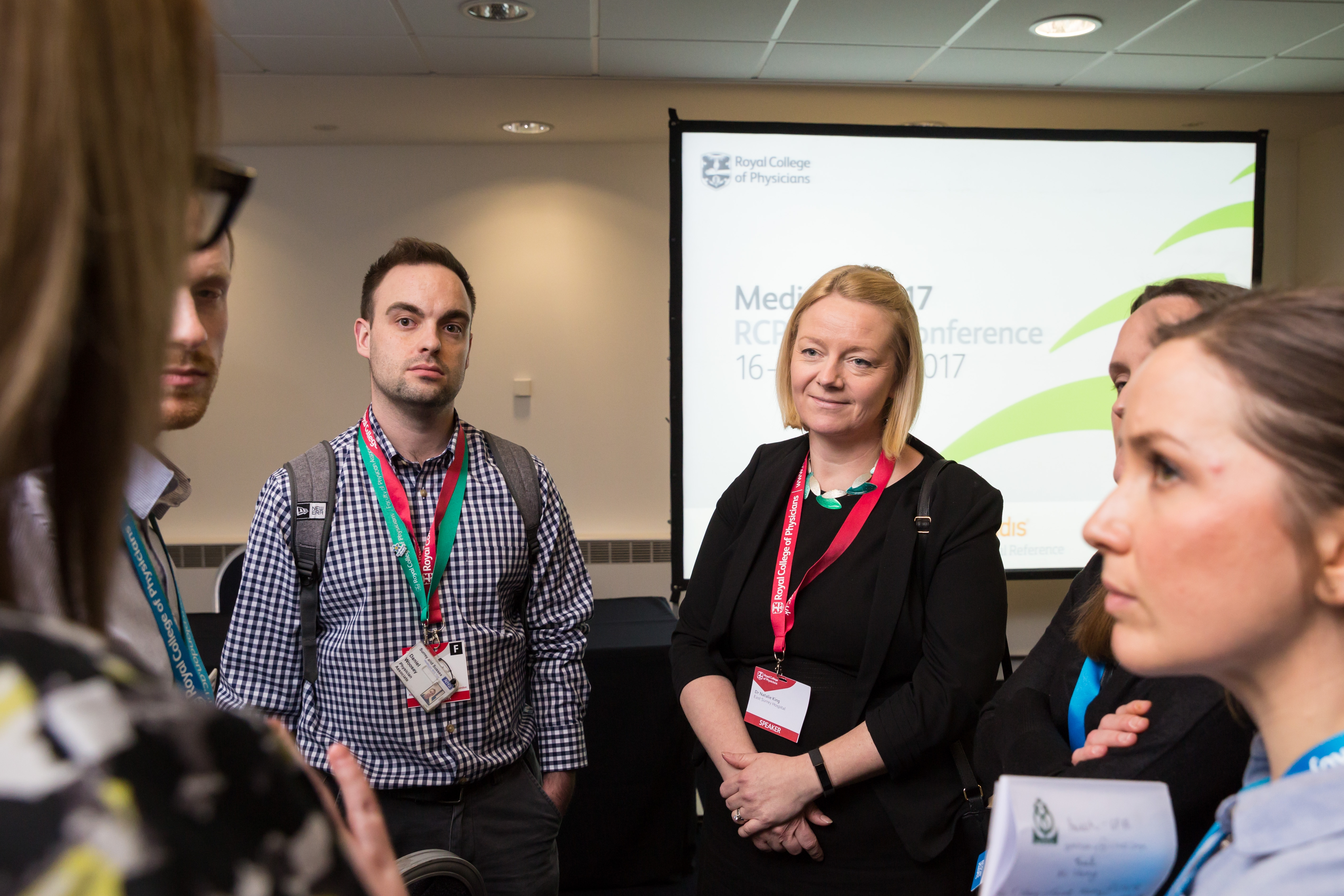 At the Royal College of Physicians' (RCP's) annual conference ‘Medicine 2017’ on 16–17 March, the Faculty of Physician Associates (FPA), and physician associates as a whole, received a very warm reception from physician associates and physicians alike. Thank you to everyone who attended and joined our conversations.
At the Royal College of Physicians' (RCP's) annual conference ‘Medicine 2017’ on 16–17 March, the Faculty of Physician Associates (FPA), and physician associates as a whole, received a very warm reception from physician associates and physicians alike. Thank you to everyone who attended and joined our conversations.
The FPA was pleased to host three sessions over the 2–day conference, including ‘Physician associates: shaping the future of the medical workforce’. This was very well attended, and it was a great opportunity to address many of the questions that were raised by physicians who wanted to know more about the role and what it has to offer the NHS.
Dr Johnny Boylan, clinical fellow at the RCP, discussed the stresses and strains on the NHS workforce at present, and the ways in which physician associates can bring increased capacity, a new skill mix, and therefore be part of the solution to help ease the current workforce pressures.
Dr Natalie King is the Clinical Lead for Acute Medicine at Surrey and Sussex Healthcare NHS Trust. She is also the RCP Fellow representative on the Faculty of Physician Associates (PA) at the RCP London. Dr King has worked with PA Students and PAs for several years and employs 13 Physician Associates in her Trust where she is physician associate tutor. Dr King presented on the topic of 'Introducing physician associates to the clinical team', which adressed the benefits to the multidisciplinary team and to patients, and the importance of the supervisor and physician associate relationship. Dr King also introduced physician associate Daniel Woosey, who has been qualified for 5 years, to discuss career progression and his relationship with other members of the team including trainees.
The two lunchtime sessions running on the Thursday and Friday of the conference allowed a forum for physicians and physician associates to engage in conversations about the future of the profession, including the road to regulation, as well as discussions around 'working together'. The sessions were rated very positively by delegates, and the conversations will be incredibly useful in informing the work of the FPA moving forward.
The FPA has also been delighted by the positive attention that physician associates and the FPA received throughout many of the conference speeches and plenary sessions, from RCP president Professor Jane Dacre welcoming physician associates in her opening plenary speech, to Professor Tim Evans praising the work of the FPA and all of our members.
Philip Dunne MP, minister of state at the Department of Health, gave a speech to close the first day of the conference. In it, he referenced the growing number of physician associates, as well as the clear need for regulation of the profession. Mr Dunne announced that a roundtable about the physician associates profession will take place soon, and that a consultation about the regulation of the profession will open in the summer.
The FPA will also be increasing our pressure on the Department of Health and Philip Dunne MP not to delay these proceedings further. It is vital that the consultation is opened up soon, and that we are all ready to contribute views, opinions and evidence to demonstrate the need for the profession to be regulated.
